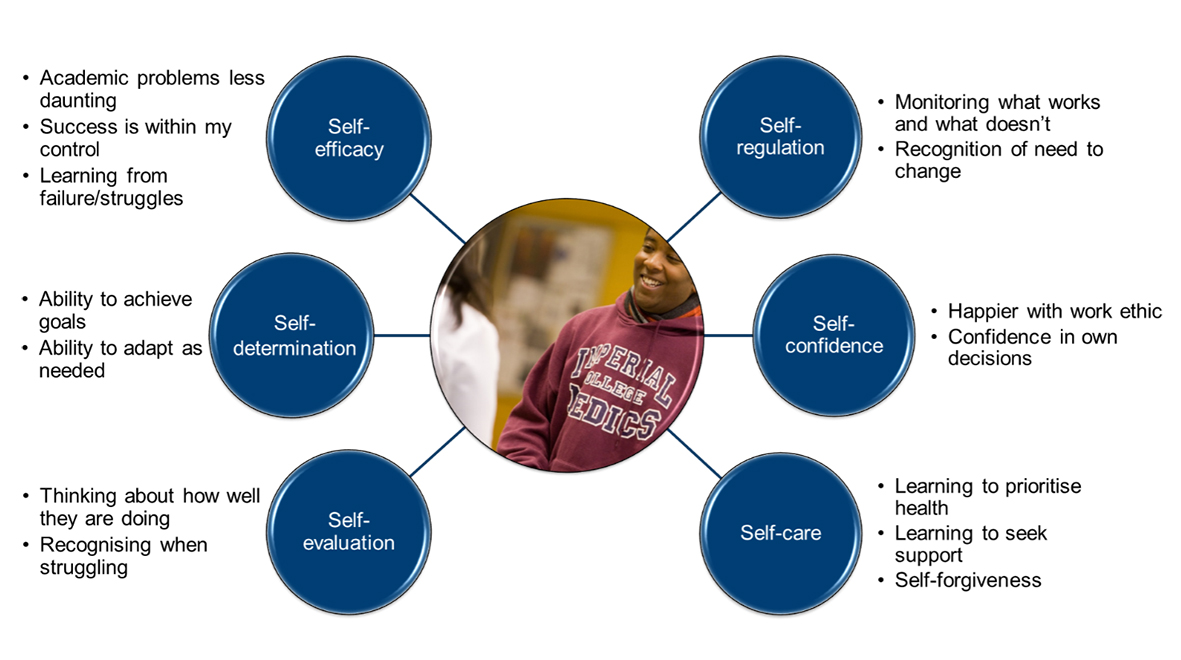Dr Kathleen Leedham-Green discusses our School of Medicine’s recent transformation in academic support.
The problem: some students working hard without reaping the rewards
Our medical students generally work extremely hard, so why were some flourishing, while others were struggling with the academic load or even failing their assessments despite putting in the effort?
In the words of one of our students:
“I’ve worked so hard. I’m exhausted. I’m a straight A* student. I can’t believe I’ve failed”
This was the question that was at the heart of the recent transformation in academic support led by Mike Emerson at Imperial College’s School of Medicine.
A new approach to learning informed by the cognitive sciences
Taking an evidence-based approach, Mike looked at the science of successful learning as outlined in the book “Make It Stick” from Harvard University Press, and drew on the expertise of Cristina Koppel in metacognition and the science of high performance.
Working together, they developed a programme for all first year medical students, supported by a team of Academic Tutors teaching this simple message: that memorisation, for example by copying out notes or highlighting text, is both effortful and relatively unproductive when compared to more active strategies. They introduced students to approaches such as interleaving, spaced repetition, effortful recall, concept mapping, and complex mastery through application of learning to real-life problems. Above all students needed the confidence and flexibility to try new strategies for learning, to reflect on the effectiveness of those strategies, and to move on if they weren’t working: also known as ‘generative learning’, or good old fashioned ‘trial and error’.
Making it happen: coaching approaches to academic support
Having taught students the cognitive side of what needed to happen, they also needed strategies to support the associated changes in behaviour. Luckily they were able to draw on the behavioural sciences via the expertise of Arti Maini, one of the authors of “Coaching for Health”. Rather than telling students what to do, Academic Tutors learnt to invite students as equals to articulate their own learning goals, to support them in adopting the growth mind-set needed to review and revise their learning strategies, and to develop the self-efficacy to overcome barriers within a supported tutorial environment.
So, did it work?
Mike, Arti and Cristina worked with Sue Smith and Kay Leedham-Green from Imperial’s Medical Education Research Unit to develop an evaluation strategy. They surveyed 141 first year students and found that 95% of respondents described their relationship with their academic tutor as positive; and 94% said the programme had helped them think critically about their study skills. They looked at two pre-existing validated scales for Mind-Set and Self-Efficacy and found a strong positive correlation between the programmes self-rated impacts and the self-efficacy scale. Looking at the detailed qualitative responses, they examined value creation:
What did students feel about the programme?
-
Students described feeling cared for, reassured and grateful. They described the programme as important, meaningful, time-intensive but ultimately affirming
What changes did students make as a result of the programme?
- They described adopting a wide range of new learning behaviours, including strategies for planning, prioritising, help seeking, experimentation, social learning and personalisation of learning strategies.
What impacts did those changes have?
- Students described improvements to wellbeing, sleep, and time management as well as benefits to learning such as improved recall and understanding, and finding learning deeper, easier and more productive.
How did students reframe their thinking?
- Students described transformative changes to their attitudes to self-care, self-regulation, self-confidence, self-evaluation, self-determination and self-efficacy, and importantly self-forgiveness.
And finally, the icing on the cake?
- Between 2010 and 2018, only 50.7% to 60.6% of students passed their formative year 1 exams. In 2019, however, 70.8% of students passed this exam, an increase of 18%!
Obviously correlation is not causation, but perhaps there is cause to celebrate?
Dr Kathleen E Leedham-Green is a Medical Education Fellow at Imperial’s Medical Education Research Unit

